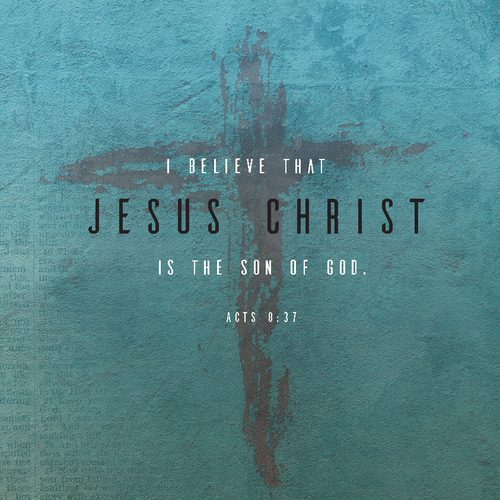Persecution Spreads the Gospel to Ethiopia

The Book of Acts emphasizes the variety of ways by which the gospel is spread. In Acts 8:1-25, we see persecution drive the gospel to a new people group (i.e., Samaria) through corporate witness accompanied by miracles at the hands of Philip. However, in Acts 8:26-40, we see the Spirit of God orchestrates a divine appointment for personal evangelism. Philip, now, is told to witness to a high-profile Ethiopian visitor.
It is no small matter that this eunuch had made the journey to Jerusalem to worship. The Law prohibited eunuchs from entering the Lord’s assembly (cf. Deut. 23:1). He could visit the temple but never enter it. He would have been limited to the Court of the Gentiles. Yet, he made a five-month journey to worship. He must have longed for Isaiah's portrayal of God’s ideal future, a future that promises eunuchs and foreigners a monument in God’s house, a name better than sons and daughters, an “everlasting name which will not be cut off” (cf. Isaiah 56:1-5). Doubtless, the eunuch, returning home that day, was not expecting to experience the fulfillment of those promises. Likewise, neither did Philip expect to be used in their fulfillment.
When Philip joined him, the eunuch was reading Isaiah 53,
It is no small matter that this eunuch had made the journey to Jerusalem to worship. The Law prohibited eunuchs from entering the Lord’s assembly (cf. Deut. 23:1). He could visit the temple but never enter it. He would have been limited to the Court of the Gentiles. Yet, he made a five-month journey to worship. He must have longed for Isaiah's portrayal of God’s ideal future, a future that promises eunuchs and foreigners a monument in God’s house, a name better than sons and daughters, an “everlasting name which will not be cut off” (cf. Isaiah 56:1-5). Doubtless, the eunuch, returning home that day, was not expecting to experience the fulfillment of those promises. Likewise, neither did Philip expect to be used in their fulfillment.
When Philip joined him, the eunuch was reading Isaiah 53,
“He was led as a sheep to slaughter;
And as a lamb before its shearer is silent,
So He does not open His mouth.
“He was humiliated and deprived of justice;
Who will declare His generation?
For His life is removed from the earth.”
And as a lamb before its shearer is silent,
So He does not open His mouth.
“He was humiliated and deprived of justice;
Who will declare His generation?
For His life is removed from the earth.”
At that time, Jewish teachers proposed three candidates for whom this passage is speaking of:
(1) Isaiah himself,
(2) Israel, or
(3) another individual (a revived Elijah, etc.).
The eunuch wondered also. In the way he asked the question, he may have thought that the passage is about Isaiah. But Philip "opened his mouth, and beginning from this Scripture he preached Jesus to him" (Acts 8:35). Philip must have explained baptism and its significance to him because he said "Look! Water! What prevents me from being baptized?" This was no coincidence because they were on a desert road leading from Jerusalem to Gaza (cf. v26). Gaza is the last water spot before several days of desert with no water.
Philip's response was "if you believe with all your heart, you may." And the eunuch replied, "I believe that Jesus Christ is the Son of God" (Acts 8:37). It is hard to believe that the eunuch couldn't wait to go tell everyone he could back home. How do I know? Because verse 39 says that the eunuch "went on his way rejoicing."
This encounter was a catalyst to taking the gospel to Ethiopia without Philip even having to go there. Ethiopia, which referred then to modern-day Sudan and the south of Egypt, was considered the remotest part of the world from the Roman and Grecian perspectives. So in effect, Philip’s witness to the Ethiopian eunuch foreshadows the completion of the great commission.
Like the eunuch, we, who formerly were "Gentiles in the flesh", "were separate from Christ, excluded from the blessings of Israel, strangers to the covenants of promise having no hope and without God in the world...BUT now in Christ Jesus you who formerly were far off have been brought near by the blood of Christ...So then [we] are no longer strangers and aliens, but fellows citizens with the saints, and are of God's household" (Eph 2:11ff). Hallelujah!
(1) Isaiah himself,
(2) Israel, or
(3) another individual (a revived Elijah, etc.).
The eunuch wondered also. In the way he asked the question, he may have thought that the passage is about Isaiah. But Philip "opened his mouth, and beginning from this Scripture he preached Jesus to him" (Acts 8:35). Philip must have explained baptism and its significance to him because he said "Look! Water! What prevents me from being baptized?" This was no coincidence because they were on a desert road leading from Jerusalem to Gaza (cf. v26). Gaza is the last water spot before several days of desert with no water.
Philip's response was "if you believe with all your heart, you may." And the eunuch replied, "I believe that Jesus Christ is the Son of God" (Acts 8:37). It is hard to believe that the eunuch couldn't wait to go tell everyone he could back home. How do I know? Because verse 39 says that the eunuch "went on his way rejoicing."
This encounter was a catalyst to taking the gospel to Ethiopia without Philip even having to go there. Ethiopia, which referred then to modern-day Sudan and the south of Egypt, was considered the remotest part of the world from the Roman and Grecian perspectives. So in effect, Philip’s witness to the Ethiopian eunuch foreshadows the completion of the great commission.
Like the eunuch, we, who formerly were "Gentiles in the flesh", "were separate from Christ, excluded from the blessings of Israel, strangers to the covenants of promise having no hope and without God in the world...BUT now in Christ Jesus you who formerly were far off have been brought near by the blood of Christ...So then [we] are no longer strangers and aliens, but fellows citizens with the saints, and are of God's household" (Eph 2:11ff). Hallelujah!
- Do you believe that Jesus Christ is the Son of God? It is the only way to be in the family of God.
- Are you rejoicing in that and that you have been reconciled to God? Then go tell someone.
Posted in Book of Acts
Recent
Habakkuk 2:4b — The Just Shall Live By Faith
February 20th, 2026
Habakkuk 1:12–2:1— Appealing to the Throne of God
February 13th, 2026
Habakkuk: Trusting God in Troubled Times
February 6th, 2026
John 20:18–31 — Believing is Seeing
January 16th, 2026
John 20:1–17 — Love Turns Grief into a Mission
January 10th, 2026
Archive
2026
2025
October
2024
February
March
April
May
July
October
November
December
Advent 2024 Devotion: December 2Advent 2024 Devotion: December 3Advent 2024 Devotion: December 4Advent 2024 Devotion: December 5Advent 2024 Devotion: December 6John 3:16-21 — For God So Loved the WordAdvent 2024 Devotion: December 7Advent 2024 Devotion: December 8Advent 2024 Devotion: December 9Advent 2024 Devotion: December 10Advent 2024 Devotion: December 11Advent 2024 Devotion: December 12Advent 2024 Devotion: December 13Advent 2024 Devotion: December 14Advent 2024 Devotion: December 15Advent 2024 Devotion: December 16Advent 2024 Devotion: December 17Advent 2024 Devotion: December 18Advent 2024 Devotion: December 19Advent 2024 Devotion: December 20Advent 2024 Devotion: December 21Advent 2024 Devotion: December 22Advent 2024 Devotion: December 23Advent 2024 Devotion: December 24Advent 2024 Devotion: December 25
2023
January
February
March
April
May
